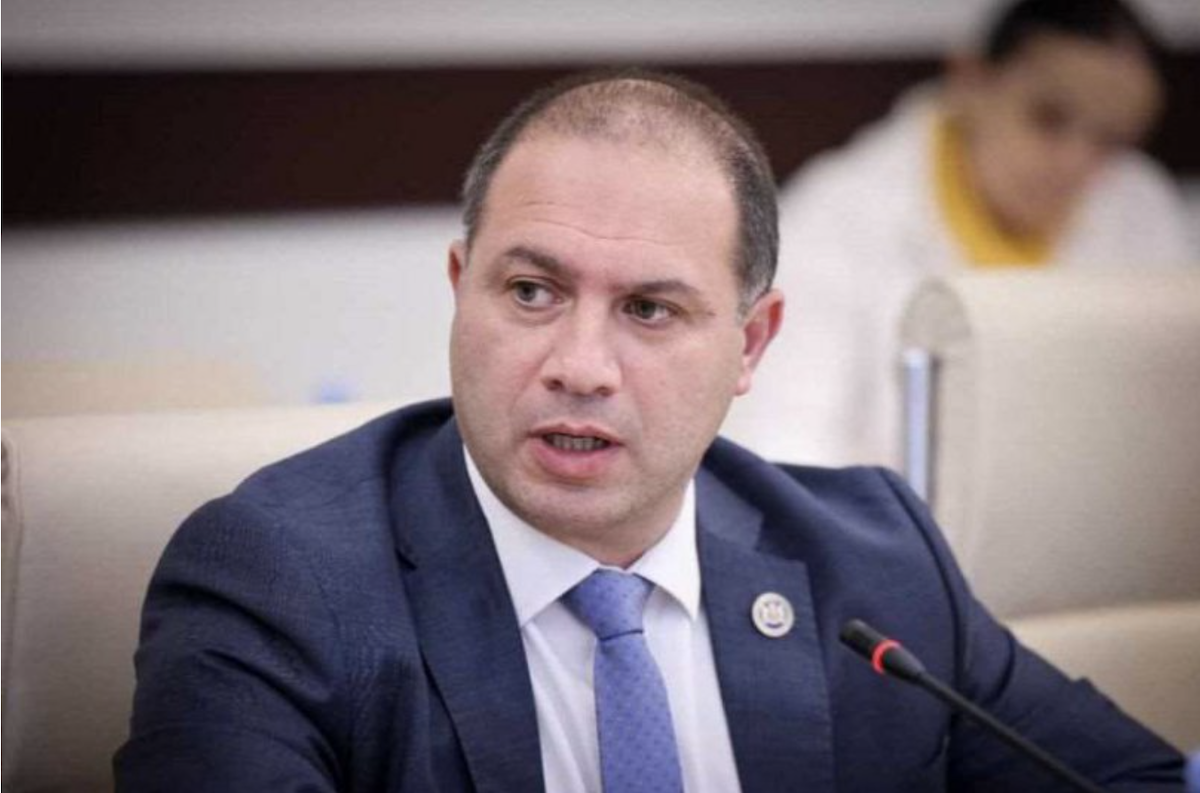Singers and cleaners – our only hope
The upcoming New Year reminds us of two major tasks: what to buy for the holiday and how to plan the next year. The government is facing the same tasks: Azerbaijani government has developed its own 7 ways of making money in the next year.
Measure № 1: Differentiation of tax rates
Alike the word ‘devaluation’, which was the key trend in 2015, ‘differentiation’ is going to become the major trend in 2017. What a smart word ‘differentiation’ actually implies is an attempt to impose taxes on all those, who, until now, have been dodging them. So, under the amendments introduced to the country’s Tax Code (and they are really grandiose in number – a total of 201 amendments), once you decide to earn your living through singing or dancing at the wedding parties, you will have to pay AZN30 monthly tax fee. Individuals employed in the so-called ‘informal’ sector (housemaids, private drivers, babysitters, cleaners, gardeners, chefs etc.) will have to pay AZN 10 per month. Home appliances repairmen and painters will have to pay AZN5 and AZN20, respectively. Tax fees will vary depending on a place of registration of one’s business. If your business is registered in Baku, you will have to pay at the dual rate, whereas if it’s in Daş Salahlı village, Qazah district, then you may get by with 0,5% of tax rate.
Measure №2: Differentiation of customs duties
Another differentiation concerned the customs field. It was decided to shift from a uniform rate of customs duties on imported goods onto a ‘differentiated’ one, i.e. the one that will vary depending on the types of goods. The first to fall under this category were eggs, chicken meat, onions, cucumbers, dried grapes and some other products. Given the lack of domestic producers of eggs for hatchery, chicken meet for sausages and other products, this will lead to a hike in prices, and that’s exactly what the government will gain profit from in the form of increased sales and income taxes.
Measure №3: Export duties
It was believed earlier that unlike problems with importing goods to Azerbaijan, one could export everything from the country, because there were no particular restrictions on exports (except for strategic raw materials). Having noticed that injustice, the government has imposed customs duties on many types of goods this year. The State Customs Committee has promised that the list, which currently includes up to 90 items (from cowhide to copper items), will be further expanded next year.
Measure №4: Privatization
Despite 2 state-run programs, privatization hasn’t eventually got off the ground in our country: many facilities have remained in state ownership since Soviet times. Now, it has been decided to privatize nearly 3,000 of such facilities till the end of last year. 2,500 facilities out of that number are former culture centers, rural clubs and other institutions that are no longer needed. On the other hand, it has turned out that despite the fact that there are no more pioneers in the country, there are pioneer camps on the balance sheets of the Ministry of Defense and three state-run companies: International Sea Trade Port CJSC., Azerbaijani Airlines CJSC and State Oil Company of Azerbaijan Republic (SOCAR). They will be facing privatization. The government expects it to bring additional AZN200million to the state budget next year.
Measure №5: Setting up LEPLs
For quite a long time, the governmental structures were blamed by many for ‘doing business’. Now, the bigger part of agencies and committees have become semi-commercial entities – the Legal Entities of Public Law (LEPL). In other words, they can now openly run a business in their area. For example, the State Examination Center (former SCSA) has already announced about introduction of fee-based entrance exam system.
Measure №6: ‘Differentiation’ of public utility tariffs
In early December, Azerbaijani Tariff (Price) Council decided to kind of increase the public utility tariffs. To be more precise, the tariffs were raised, but that was also termed as ‘differentiation’. Tariff increase hasn’t concerned those, who consume less than 300 kW/h of electricity per month and 1,700 cub.m. of gas per year. Thus, all the enterprises, be it poultry farms or huge supermarkets, will pay bills under the new tariffs. This will consequently lead to increase in prices on many types of goods. As a result, the assignments to the state budget and the price’ tax component will increase.
Measure №7: Increase in length of service
Under the Azerbaijani legislation, in order to get a ‘labor pension’, one is required to work a minimal number of years. Under the new bill ‘On pensions’, the government, that throughout the year has been persistently refuting the rumors about raising the retirement age, now suggests raising the required length of service for public employees from 15 up to 20 years, for military servicemen – from 20 to 25 years, for prosecutors – from 25 up to 35 years; for other careers the required length of service will be increased by 5 years. Unlike the issue of retirement of public servants and prosecutors, which kindles the interest just in about 40,000 people, increase in a minimum seniority pension age from 25 to 30 years seems to be interesting for the entire population. If the bill is passed (Milli Majlis is unlikely to reject it), then the number of retirees will be reduced already the next year. This, in turn, will allow to save funds in the State Social Protection Fund, as well as to economize state subsidies and replenish the budget at the expense of tax deductions for extra 5 years.
The government officials stated on the number of occasions that, unlike a ‘tough’ year 2017, 2018 should become the year of development, so we are to further expect more ingenuity and creativity when it comes to budget replenishment.



















